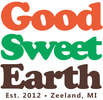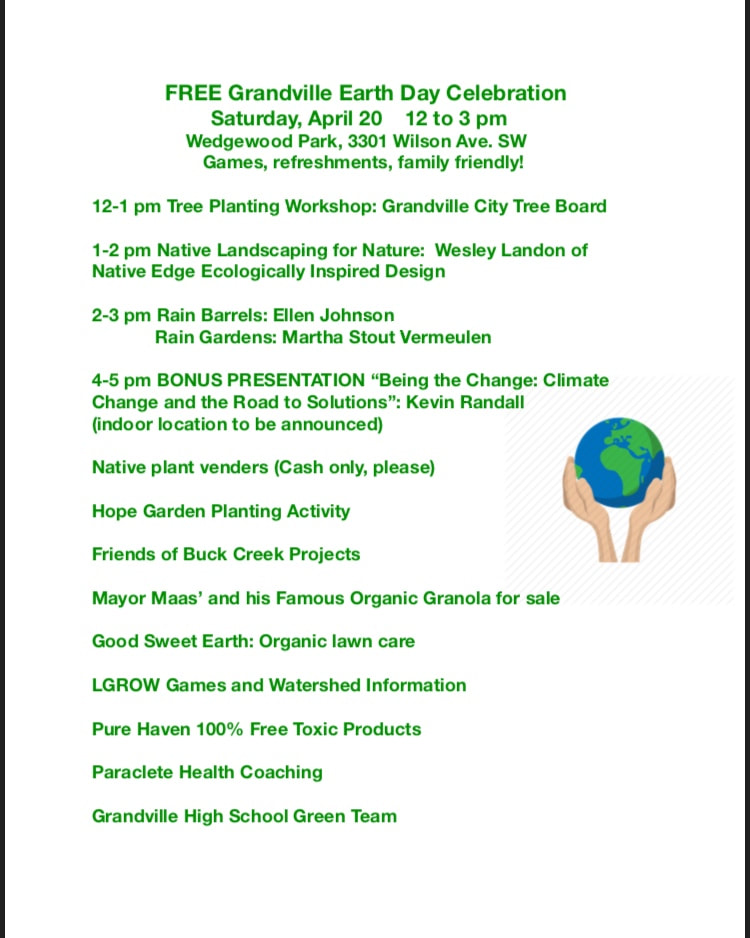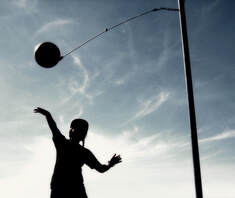 Like most Americans, our family has been hunkered down for the past couple of weeks, avoiding as much social contact as possible to help slow down the spread of COVID-19. It’s meant a lot more “home time” for us, which means more board games, reading, Disney+ and even a little yard work when the weather permits. But even as the weather warms, we expect to spend a lot more time at home this summer than in years past. Events like Holland’s Tulip Time have already been cancelled, and it’s uncertain what other outdoor events and activities will look like in the months ahead. And so we’re already looking forward to some fun activities we can do in our yard.
As we get ready for spring to hit, it’s important to think about your turf, especially if there will be increased traffic on it this year. Chemical fertilizers, while giving an immediate burst of color and growth, don’t actually do much for the overall health of your grass. Plus, chemical fertilizers and weed killers can be harmful for people and pets. Good Sweet Earth offers an alternative that can make your turf better suited for increased foot traffic and playtime, as well as keeping it healthy for kids and pets to roll around on. We use only things found in nature to feed your turf—vermicompost, kelp, alfalfa meal and grains. Sound simple? It is, but we’ve been doing this for more than a decade now, and it really, really works. If you’re interested in getting a quote for services, or learning more, give us a call at 616.594.0693 or email our lawn guy Steve at [email protected]. More time spent on your lawn means it’s more important than ever to have turf that is both safe for your family AND looks great.
1 Comment
Rain or shine (or whatever Michigan's skies give us), join us at Wedgewood Park, 3301 Wilson SW, in Grandville this Saturday, April 20, from noon to 3pm.
We'll be there to answer any questions you might have about organic lawn care, as well as a fun activity for the kids. In addition to Good Sweet Earth, there will be a tree planting workshop, presented by the Grandville City Tree Board (noon-1pm); a workshop on native landscaping (1-2pm); and a rain barrel and rain garden workshop (2-3pm). There will also be native plant vendors on-hand (cash only), planting activities, special activities from the Friends of Buck Creek, games, and Grandville Mayor Maas' "Famous Organic Granola" for sale. Activities are free, and we hope to see you there! 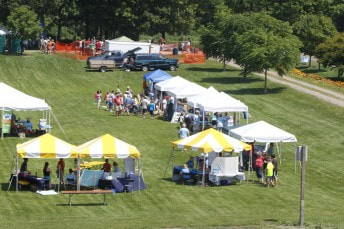 Photo courtesy the Outdoor Discovery Center Photo courtesy the Outdoor Discovery Center We're excited to be part of the Fourth Annual Macatawa Water Festival this Saturday, July 14, at Windmill Island in Holland! The event goes from 9am-1pm, and is free to the public. We'll be joining over 30 other community organizations promoting a cleaner, healthier Macatawa Watershed. Activities will include kayaking, fishing and crafts! Meijer will be there providing fresh fruits and veggies from local farmers. Good Sweet Earth will be there (Steve & Corey) to talk about the importance of healthy soil and vermicomposting in relation to healthy watersheds, with a craft for the kiddos. The Macatawa Water Festival benefits Project Clarity. Windmill Island is located at 1 Lincoln Avenue in Holland. For more information, click here. 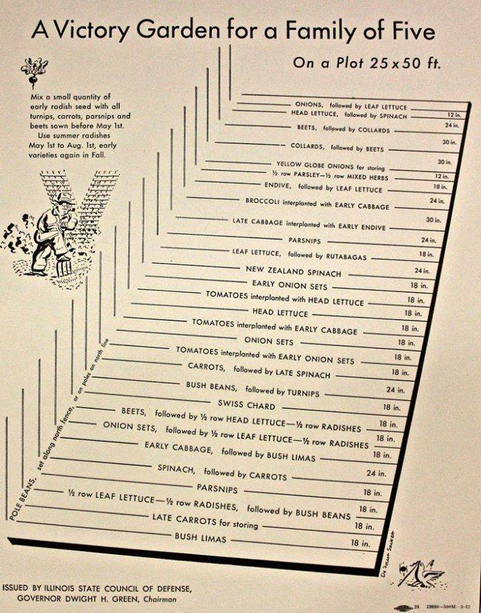 This year marks the 100th anniversary of the Victory Garden. In case you’re unfamiliar with this bit of agricultural history, here’s a quick summary: Victory Gardens became popular during World War I as a way to ease demand on the public food supply, as well as boost morale for Americans struggling through a major war. The Victory Garden campaign was then resurrected during World War II for all the same reasons, but this time, it spread across European nations as well. The government, during both wars, encouraged families to grow fruits and vegetables in their yards, as well as in community gardens. The idea to encourage backyard and community gardens sprung from the need to increase food supply at a time when our agricultural resources were being shifted elsewhere, and transportation facilities were needed for the war effort. Every family that grew their own tomatoes, carrots, berries, herbs and cucumbers did so because they truly felt like their backyard garden was contributing to a larger cause. President Woodrow Wilson said, “Food will win the war.” So what does this have to do with us today? Is there a place for Victory Gardens in 21st century America? Well, let’s think about this: there might not be a great American war raging in the traditional sense, but what about a war against corporate greed? Unsafe farming practices? Chemicals invading our environment and polluting our water supply? An economic culture that forces us to rely almost exclusively on corporations for our well-being? Worker exploitation? What if we started fighting for the small family farmer? For a cleaner watershed? For an environment with less greenhouse gasses? For healthy soil that won’t erode when the wind blows? For produce grown in an environment that didn’t exploit labor? The more food we grow ourselves, the less we rely on corporate supermarkets, shipping companies and corporate mega-farms for our food. For every tomato we grow ourselves, that’s one less tomato that had to be trucked across the country in a hot semi from a corporate farm to a chain store. The more organic fertilizers and soil amendments we use, the less we rely on multi-national chemical companies to feed our plants (and ruin our soil). For every bag of Worm Compost, or alfalfa meal, or biochar, or fish emulsion, we use, that’s less money going into the pockets of billion-dollar chemical companies. Natural fertilizers and amendments also replenish the microorganisms and organic matter in the soil that chemicals destroy. The more we shop from local farms, co-ops, CSAs and farmers markets, the more of our money stays right here in our own community. For every bundle of radishes you buy directly from the local farmer who grew it, that’s money going to a family that lives, plays, works and goes to school within 50 miles of your own home. So, you want to do your part to heal the planet? Rely less on corporations for your food. Rely less on laboratories for your fertilizer. Rely MORE on locally-grown organic food—that either you grow or a small family farmer has grown for you. Let’s re-introduce Victory Gardens for the 21st century— the war might not be the same as it was a hundred years ago, but if we lose this one, what kind of planet will we leave for our kids? If you’d like to grow more chemical-free food for your family this year, check out these Good Sweet Earth products, or (if you live in West Michigan) hire your own personal garden consultant to walk you through the growing season. If you’d like to buy some local produce, here are a few local West Michigan sources we love that you can try out this year as well: 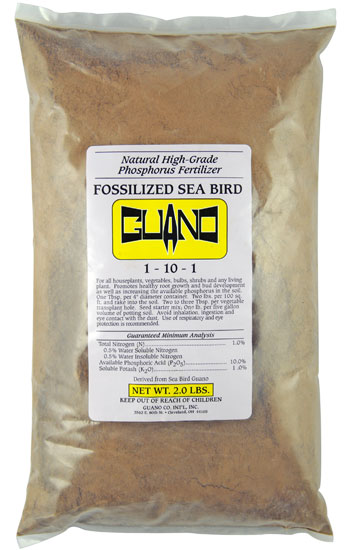 Earlier this summer, residents in Toledo, Ohio and southern Michigan were given the shocking news that their tap water was dangerous– ‘do not drink, do not touch, do not boil,’ is what they were told. Talk about scary! Some people had to drive into neighboring counties to find enough bottled water to support their family through the crisis. This wasn’t a gas shortage, or a snow shovel shortage before a storm, or a Nutella shortage— those are all annoyances– but this was a serious, serious situation these residents were facing. The water in Lake Erie, scientists told us, was poisoned due to phosphorus run-off which then caused algae blooms in the shallow parts of the water. Most of this comes from neighboring farms, but if you’ve got a yard, you also need to be aware of what’s in the fertilizer you’re using. When too much phosphorus gets into bodies of water, you get these toxic algae blooms. For the most part, on smaller lakes, that means you can’t go swimming there for a few days. But when it happens in larger bodies of water– like Lake Erie– it affects our supply of drinking water. When it comes to your yard, read labels. Scott’s got rid of phosphorus from their turf builder a couple years ago, but if you use things like Miracle Gro for your flowers and fruits and vegetables, you need to be aware that you’re putting phosphorus into the environment. Plants like turf grasses don’t flower or produce large fruit, so they absolutely do not need any (or VERY little) added phosphorus. When it comes to phosphorus pollution, going the organic route is no less safe than using chemicals. You need to use things like bone meal sparingly, and if you’re using a seabird or bat guano, make sure it’s a type that’s high in nitrogen, not phosphorus. Read the labels before you buy organic fertilizers. The nutrient analysis is displayed on the product label is NPK– or Nitrogen, Phosphorus, Potassium. If your plant doesn’t flower or produce fruit, avoid the fertilizers with lots of phosphorus– the middle number on the nutrient analysis should be as close to 0 as possible, and 4 should be about as high as you go. For instance, this seabird guano is high-phosphorus, so it’s nutrient analysis is 1-10-1– one percent nitrogen, 10 percent phosphorus and one percent potassium. Avoid this for the most part, and when you do use it, use it very sparingly and make sure you don’t get any on cement or near bodies of water (ponds, streams, creeks, lakes, etc). On the other hand, this bat guano has an analysis of 8-4-1, which means it has 60% less phosphorus than the seabird guano. You should still use it sparingly, and avoid spillage onto cement or water, but it’s not nearly as toxic to the environment as the seabird stuff. At Good Sweet Earth, our Worm Compost is largely phosphorus-free. Our Bold Tomato and Dulce Rosa do contain a little high-nitrogen bat guano, so these specialty mixes do have some phosphorus (to help with rose blooms and tomato production), but it’s only a small component of the mix. So when it comes to your yard, be mindful of what you apply to your lawn and garden– reduce the amount of phosphorus fertilizer you use on your garden plants (and be careful not to spill any on your driveway, sidewalk or pavers), and DO NOT apply any phosphorus to your lawn. Every little bit helps when it comes to keeping our drinking water safe. When it comes to large farms, you can call your state and federal legislators to urge them to pass legislation to require farmers to implement best-use practices. Farm lobbyists are fighting such legislation, even after this most-recent water scare in the Toledo area, which will allow them to continue putting their own profits over public and environmental safety. And we’re not talking small family farms here– these are the large corporate-owned farms that would rather do things cheaply than safely. Some cities and counties in Michigan are taking a closer look at the dangers of phosphorus to their waterways as well. Ottawa County has already banned the use of phosphorus fertilizers. Let your local leaders you’d like to see them follow suit. For more information on what you can do to fight phosphorus pollution, get in touch with us by shooting an email to [email protected]. |
